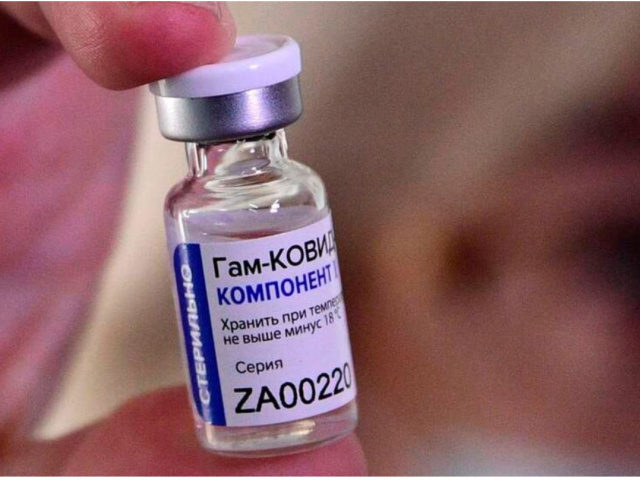Russian health volunteers are mulling legal action after they received Russia’s second, less effective vaccine against the Chinese coronavirus instead of the Sputnik V shot for which they had opted, independent Russian newspaper Novaya Gazeta reported.
Seven vaccine recipients from across Russia told Novaya Gazeta that health officials either misled them into thinking they received the Sputnik V vaccine or were unable to receive it due to shortages at the vaccination sites. All instead were vaccinated with EpiVacCorona, another Russian-developed vaccine candidate under even greater scrutiny than the Sputnik V option.
Russian law requires that vaccine recipients sign consent forms explicitly detailing which product they will receive in advance. Healthcare officials must disclose that information.
“The lack of information about the vaccine given to a patient, as well as its replacement without the patient’s consent, is a violation of their rights,” lawyer Georgy Melkov told Novaya Gazeta.
He went on to detail the legal vulnerability of the healthcare workers facing the accusations.
“Depending on the severity of the consequences and other factors, those responsible for such violations may be brought to civil, disciplinary, administrative and even criminal liability,” Melkov asserted.
EpiVacCorona, the second Kremlin-approved coronavirus vaccine, was developed by the Vektor Institute, a biological warfare research organization from the Soviet Era, the Moscow Times noted. Initial research and statements from health officials indicated EpiVacCorona had a 100-percent efficacy rate, though the Vektor Institute walked back the estimates following data in June that showed that over half of its recipients retained antibodies nine months later.
Sputnik V became the world’s first government-approved coronavirus vaccine when Russian leader Vladimir Putin authorized it for use in August 2020, even though it had yet to complete Phase III clinical trials.
In February of this year, peer-reviewed data from the developers appeared in the Lancet scientific journal claiming Sputnik V had proven to be 91.6 percent effective, placing it behind only the American mRNA vaccines from Pfizer and Moderna, which have tested at 95 and 94.1 percent efficacy, respectively. Like its American counterparts, the Sputnik V vaccine requires two doses, though as of May of this year, recipients may opt for a one-dose “Sputnik light” offering, which is allegedly 79-percent effective.
Putin claimed that one of his two daughters, without specifying which, received the Sputnik V candidate in August 2020 and announced in March 2021 that he had received a coronavirus vaccine, without saying which one. Instead of publicly broadcasting his vaccination, as many world leaders did, Putin opted to receive it in private. Kremlin spokesperson Dmitry Peskov previously implied that Putin would receive one of the Russian options, but offered no proof he had done so after the announcement.
Despite Putin’s championing of Sputnik V, his alleged use of it on his daughter, and the peer-reviewed data lending some credibility to the vaccine, Russians have been hesitant to embrace their domestically-produced options. A May poll from SuperJob.ru, a Russian social media website comparable to LinkedIn, found 42 percent of Russians would refuse vaccination under any circumstances and a further 20 percent remained undecided on the matter.
Moscow has met with some success in its efforts to market Sputnik V abroad, as the governments of Iran, Venezuela, Belarus, Brazil (albeit after threat of legal action), and Argentina have approved it for use.

COMMENTS
Please let us know if you're having issues with commenting.